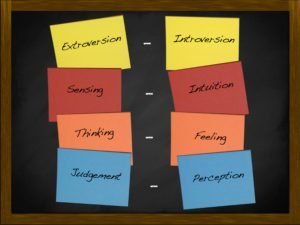Team Building - Don't Have To Do It All Alone
Understanding the Dynamics of Building Your Team

According to Wikipedia, team building is defined as; "...a collective term for various types of activities used to enhance social relations and define roles within teams, often involving collaborative tasks."
There are three key elements in this definition that is worthy to explore. First of all, it says that it enhances social relations. In a perfect world, it would be great if an immediate effect was enhancement, but sometimes it can take a while for teams to be truly productive. According to psychologist Bruce Tuckman, he said that teams go through 5 stages of development; forming, storming, norming, performing, and adjourning. Essentially this captures the time period from when the group first meets until the project is completed. Some highlights include:
Forming: Introductions, excitement among team members, enthusiastic to start something new
Storming: The reality & weight of the tasks hits everyone, some personalities may clash, potential for problems
Norming: People notice & appreciate others strengths, contributions are high, and cohesiveness is starting
Performing: Members are confident and motivated, often work unsupervised, and preparing to complete project
Adjourning: The team disbands (often called the mourning stage) because members start feeling a loss
The second element in the definition is; defining roles within teams. Not only is it important to disperse the responsibilities fairly, but also wisely. According to StrengthsFinder, we all have 5 main signature themes and if we work within these innate perimeters, we will likely flourish and our contributions will be of excelling value. According to CliftonStrengths, an assessment of team members in advance can help position them to perform optimally with successful outcomes. It might be worth the effort in the beginning to determine these attributes.
The last element; collaborative tasks, really highlights the value of teams - not doing it on your own. True, it may seem easier to just do it yourself rather than assess team members and delegate accordingly, but the benefits of collaboration are innumerable. These include brainstorming ideas together, hearing other points of view, expanding our perceptions, appreciating other gifts and talents, learning to be observant, patient and
accepting. The end result is usually far superior because of the collaborative effect.
So if your team is ready to hit the ground running on your next big project, then hopefully some of the resources above can help. However, if you need help developing team supports, perhaps you could reach out to our team of professionals with varying degrees of experience and expertise. Why do it alone, when you can get help moving your business forward. We welcome you to book a free discovery call to see if our virtual support services can either help optimize your current team members, or be the team that you just might need!
"If you want to go fast, go alone.
If you want to go far, go together."
African Proverb
Sources: Wikipedia/Toggl/CliftonStrengths


